“The merits and advantages of our city are many. Sofia has great potential, and our task is to develop and present it”, said in an interview for Radio Bulgaria Sofia Mayor, Mrs. Yordanka Fandakova.
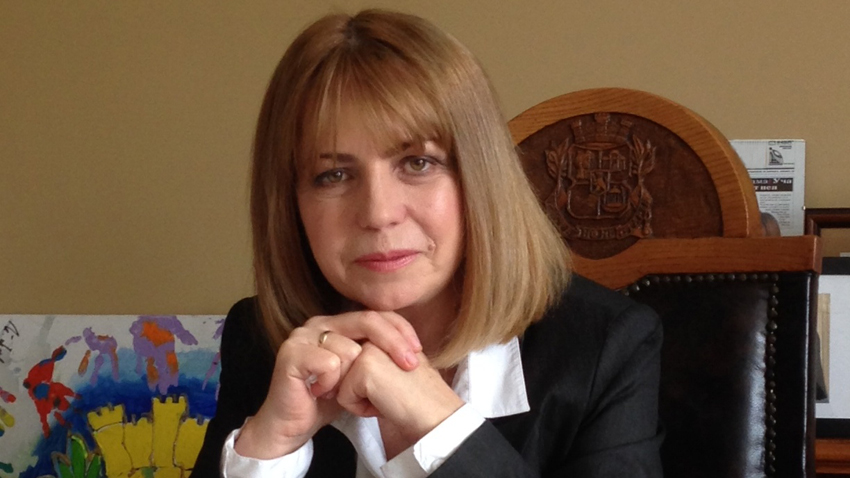
Being one of the oldest cities in Europe, Sofia has a very rich cultural heritage. Therefore, in recent years we have invested substantial amounts in its uncovering, restoration and exhibition. Last year for example the underground archaeological museum under the Saint Sophia basilica opened for visitors. It enjoys great interest and many visits - over 30 thousand so far by both Sofia residents and guests from across this country and abroad.
“A few years ago, when we created a large arts patronage municipal program Culture for external projects, we set as a special priority "Cultural historical heritage" as under it we have already funded a number of projects for the restoration of icons in the churches from the Minor Holy Mount (Mount Athos) complex and restoration of churches”, Sofia Mayor Mrs. Fandakova said.
For several years now, teams are working also at the Urvich fortress which is located within the territory of Sofia Municipality. Also, a large investment of over 5.5 million leva was also made for the uncovering of the archaeological remains at the heart of the city. On an area of more than 20,000 square meters the remains of ancient Serdica were unearthed. Of course, not only the rich historical and cultural heritage is a resource of the city. The greatest resource are the people, the artists, these are also the dozens of museums, galleries, theaters, which are filled with audience, Mrs. Fandakova believes. “This is a potential that we want to develop and thus attract many people because culture is a part of the city's economy”, she adds.
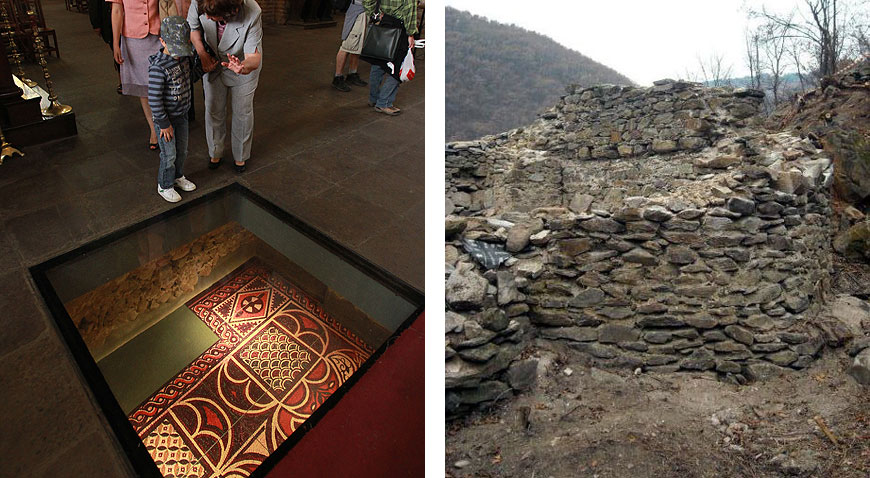 The European Capital of Culture is a citizens' initiative, which means the participation of citizens, not only of artists and the decentralization of culture is crucial. From the outset, Sofia’s application procedure went along with dozens of discussions and polls. Over 15,000 people joined with their own ideas for Sofia. “The European trends focus on modern arts being developed in new spaces, most of which have been abandoned. Their revival lends the city a vibrant look, attracting investors to them”, says Sofia mayor. Such places are for example the tram depot at Maria Louisa Boulevard and the space outside the central railway station, a very unattractive part of the capital. The young people from “Undergara” and various organizations are willing and ready to lend new dimensions to these places and turn them into venues of cultural industries. Following a decision of the Sofia Municipal Council, the Union of Bulgarian Actors was granted some space at the James Boucher subway station for an underground theatre. And the municipality works in cooperation with the young people from the Sofia Breathes festival for reanimating another deserted area – the former refrigerant factory.
The European Capital of Culture is a citizens' initiative, which means the participation of citizens, not only of artists and the decentralization of culture is crucial. From the outset, Sofia’s application procedure went along with dozens of discussions and polls. Over 15,000 people joined with their own ideas for Sofia. “The European trends focus on modern arts being developed in new spaces, most of which have been abandoned. Their revival lends the city a vibrant look, attracting investors to them”, says Sofia mayor. Such places are for example the tram depot at Maria Louisa Boulevard and the space outside the central railway station, a very unattractive part of the capital. The young people from “Undergara” and various organizations are willing and ready to lend new dimensions to these places and turn them into venues of cultural industries. Following a decision of the Sofia Municipal Council, the Union of Bulgarian Actors was granted some space at the James Boucher subway station for an underground theatre. And the municipality works in cooperation with the young people from the Sofia Breathes festival for reanimating another deserted area – the former refrigerant factory.
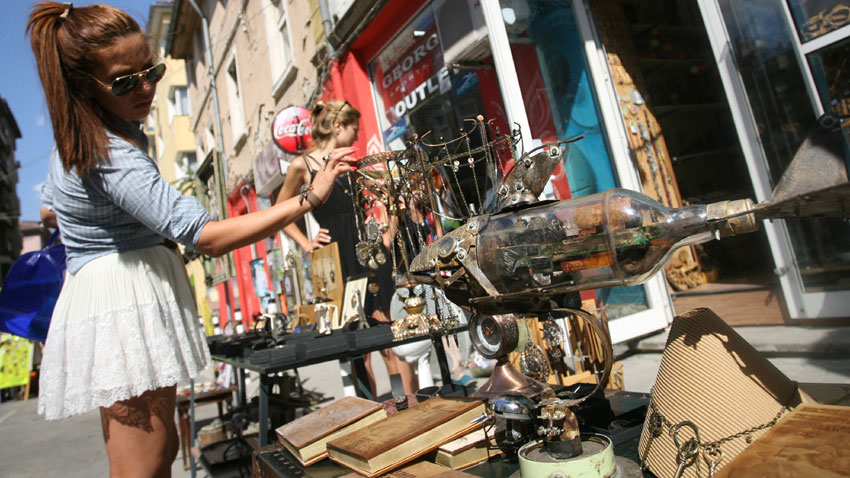 These are actually almost entirely voluntary activities. How are they changing not only the urban environment but also the people living in it?
These are actually almost entirely voluntary activities. How are they changing not only the urban environment but also the people living in it?
“We rely strongly on volunteer work. Young people have worked for the past several years on Sofia’s application and these activities are developing more and more. When they are involved in this directly, they get excited and have a personal attitude and there is no way they would be left impartial and unchanged, so I believe very strongly in young people because this is a cause for me.”
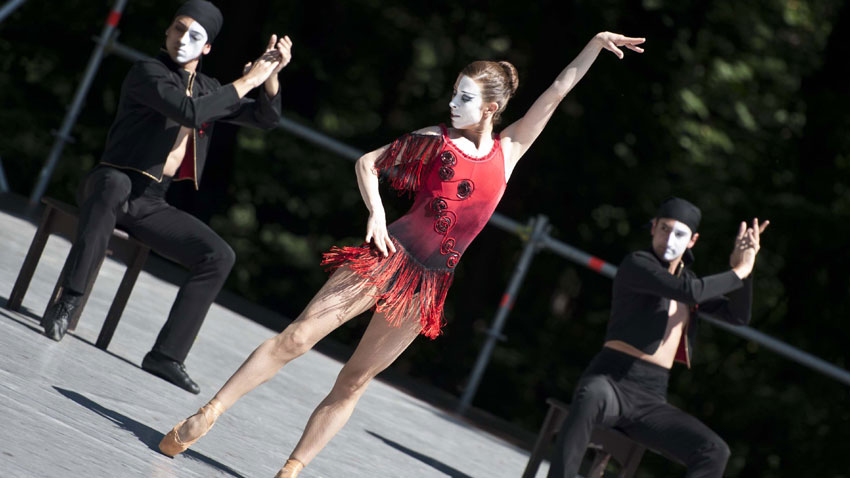 The festival program is a key moment in Sofia's bid for European Capital of Culture as efforts are made at reinforcing already established festivals and at the same time seek starting new ones. There are music festivals such as Sofia Jazz Peak that are well-known already as well as new festivals aimed at the younger, avant-garde audience. One of the most popular is "Sofia breathes".
The festival program is a key moment in Sofia's bid for European Capital of Culture as efforts are made at reinforcing already established festivals and at the same time seek starting new ones. There are music festivals such as Sofia Jazz Peak that are well-known already as well as new festivals aimed at the younger, avant-garde audience. One of the most popular is "Sofia breathes".
“Outdoor concerts have also become part of the city’s cultural life. One example is "Opera in the Park" which is held in conjunction with the National Opera and Ballet Theatre in the part of the Military Academy. This year the Sofia Philharmonic has also joined the initiative with a proposal for outdoor concerts at a very stylish venue, the Vrana Park”.
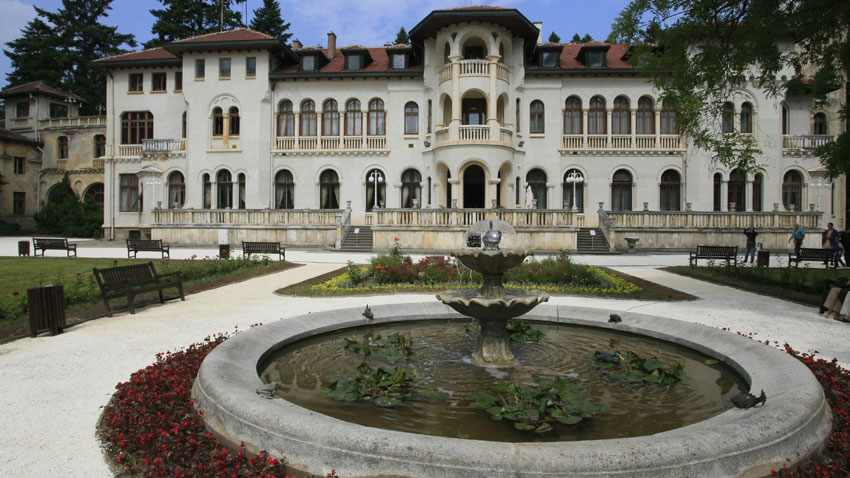 Does Sofia’s application for European Capital of Culture need its own ambassadors?
Does Sofia’s application for European Capital of Culture need its own ambassadors?
“We are happy that our city already has its ambassadors and their number is constantly growing. Andrea Bocelli has backed our application as well as Ennio Morricone, and now also Cecilia Attias /Sarkozy/. Ambassadors of Sofia as a capital of culture are already Toto Cutugno, Patricia Kaas, Pierce Brosnan. We are now expecting the arrival and concert of Sylvie Vartan who is to become an honorary citizen of the city. She herself participates, including via financial support, in History of Sofia project, on which we are now working. Sofia deserves this high distinction. I think Sofia is not just a Bulgarian city, but a city of Europe with its rich culture and history. So we expect more and more people to get involved in supporting its application for European Capital of Culture in 2019”.
English version: Rossitsa Petcova
The program of the Orthodox Book Week offers meetings with authors, publishers and translators of Orthodox books from the last few years. The event is held until November 10 at the ''St. Procopius of Varna'' Church, with meetings taking place every..
The "Kabiyuk" horse breeding farm in the village of Konyovets is the oldest stud farm in Bulgaria, founded in 1864 by Midhat Pasha, the governor of the vilayet of Ruse, to produce horses for the Turkish army. The farm existed until the Russo-Turkish War..
There is no exact statistic on the number of Bulgarians living abroad, but a report from the Ministry of Foreign Affairs from last year indicates that around 2.8 million Bulgarians are living outside the country . According to the 2021 population census..
The Varna Regional Library "Pencho Slaveykov" has acquired a humanoid robot. It was unveiled by the library's director, Radka Kalcheva, during the..

+359 2 9336 661
